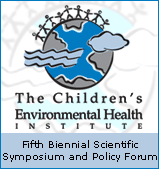| Framing Scientific Analyses for Risk Management of Environmental Hazards by Communities: Case Studies with Seafood Safety Issues Nancy L. Judd,1,2,3 Christina H. Drew,1,2 Chetana
Acharya,1,3 Marine Resources for Future Generations,4 Todd
A. Mitchell,5 Jamie L. Donatuto,5,6 Gary W. Burns,7 Thomas
M. Burbacher,1,3 and Elaine M. Faustman1,2,3 1Department of Environmental and Occupational Health Services, 2Institute
for Risk Analysis and Risk Communication, and 3Center for Ecogenetics
and Environmental Health, University of Washington, Seattle, Washington, USA; 4Korean
Women’s Association (Tacoma, Washington, USA), Indochinese Cultural and
Service Center (Tacoma, Washington, USA), Tacoma-Pierce County Health Department
(Tacoma, Washington, USA), Citizens for a Healthy Bay (Tacoma, Washington,
USA), Washington Department of Fish and Wildlife (Olympia, Washington, USA),
and Washington Department of Health (Tumwater, Washington, USA); 5Swinomish
Indian Tribal Community, Water Resources Program, La Conner, Washington, USA; 6Department
of Resource Management, University of British Columbia, Vancouver, British
Columbia, Canada; 7Shoalwater Bay Indian Tribe Environmental Laboratory,
Tokeland, Washington, USA Abstract
Risk management provides a context for addressing environmental health hazards. Critical to this approach is the identification of key opportunities for participation. We applied a framework based on the National Research Council’s (NRC) analytic-deliberative risk management dialogue model that illustrates two main iterative processes: informing and framing. The informing process involves conveying information from analyses of risk issues, often scientific, to all parties so they can participate in deliberation. In the framing process, ideas and concerns from stakeholder deliberations help determine what and how scientific analyses will be carried out. There are few activities through which affected parties can convey their ideas from deliberative processes for framing scientific analyses. The absence of participation results in one-way communication. The analytic-deliberative dialogue, as envisioned by the NRC and promoted by the National Institute of Environmental Health Sciences (NIEHS) , underscores the importance of two-way communication. In this article we present case studies of three groups--an Asian and Pacific Islander community coalition and two Native American Tribes--active in framing scientific analyses of health risks related to contaminated seafood. Contacts with these organizations were established or enhanced through a regional NIEHS town meeting. The reasons for concern, participation, approaches, and funding sources were different for each group. Benefits from their activities include increased community involvement and ownership, better focusing of analytical processes, and improved accuracy and appropriateness of risk management. These examples present a spectrum of options for increasing community involvement in framing analyses and highlight the need for increased support of such activities. Key words: Asian and Pacific Islanders, case studies, communities, community-based participatory research, framing, risk management, seafood, tribal nations. Environ Health Perspect 113:1502-1508 (2005) . doi:10.1289/ehp.7655 available via http://dx.doi.org/ [Online 27 June 2005]
Address correspondence to E.M. Faustman, Institute for Risk Analysis and Risk Communication, 4225 Roosevelt Way NE #100, Seattle, WA 98105-6099, USA. Telephone: (206) 616-4299. Fax: (206) 616-4875. E-mail: faustman@u.washington.edu The Pacific Northwest Center for Human Health and Oceans is funded by the National Institute of Environmental Health Sciences (NIEHS ; P50ES012762) and by the National Science Foundation (OCE-0434087) ; the Center for Ecogenetics and Environmental Health is funded by the NIEHS (P30ES07033) and the U.S. Environmental Protection Agency STAR (R-829467) . The authors declare they have no competing financial interests. Received 12 October 2004 ; accepted 27 June 2005. The full version of this article is available for free in HTML or PDF formats. |

